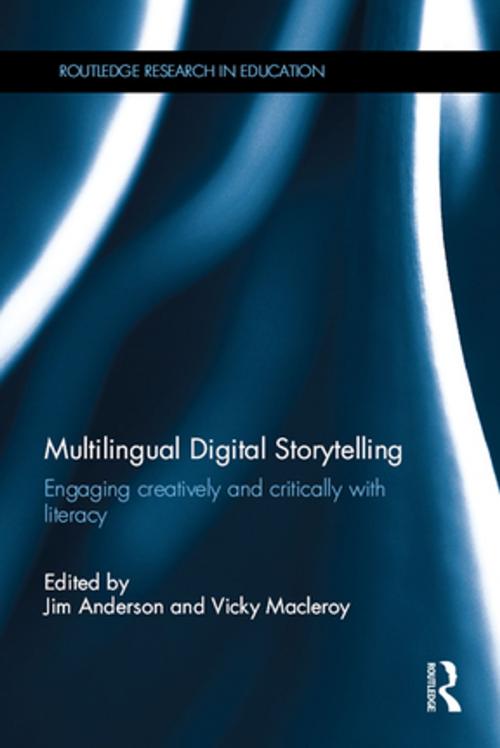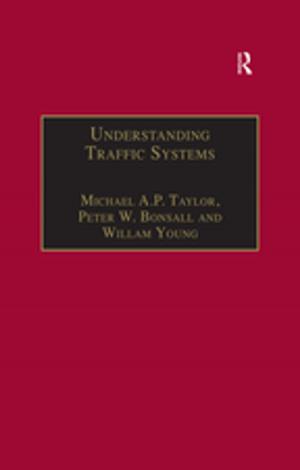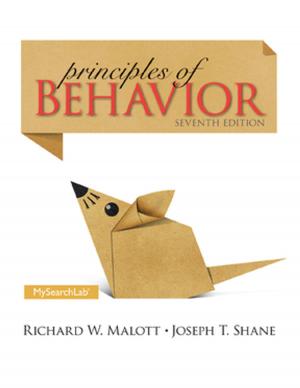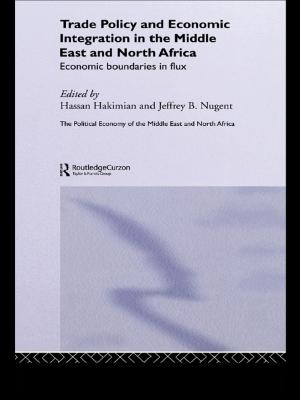Multilingual Digital Storytelling
Engaging creatively and critically with literacy
Nonfiction, Reference & Language, Education & Teaching, Teaching, Teaching Methods| Author: | ISBN: | 9781317635529 | |
| Publisher: | Taylor and Francis | Publication: | March 2, 2016 |
| Imprint: | Routledge | Language: | English |
| Author: | |
| ISBN: | 9781317635529 |
| Publisher: | Taylor and Francis |
| Publication: | March 2, 2016 |
| Imprint: | Routledge |
| Language: | English |
Classrooms are increasingly multicultural in their social composition, and students are increasingly connected, through digital media, to local and global networks. However, pedagogy has failed to take full advantage of the opportunities these resources represent. Multilingual Digital Storytelling draws attention to the interfaces between learner engagement, creativity and critical digital literacy, as well as addressing the multilingual within the multiliteracies framework.
Addressing a significant gap in the field of multiliteracies by focusing on multilingualism, this book explores new digital spaces for language learning and methods of extending understandings of youth literacy in an increasingly interconnected world. Drawing on innovative and multi-site research projects based in mainstream and community schools in London and overseas, this book discusses how young people become engaged creatively and critically with literacy by demonstrating how digital storytelling can be used as a tool for language development. The book begins by considering linguistic, cultural, cognitive and social dimensions of language learning from a theoretical perspective, whilst the second part focuses on practical case studies that reflect and illustrate these theoretical principles.
Offering a powerful new perspective on multiliteracies pedagogy, Multilingual Digital Storytelling will appeal to researchers and academics in the fields of education, applied linguistics, sociology and youth and community studies. It will also be an invaluable resource for teachers, teacher educators, curriculum planners and policymakers.
Classrooms are increasingly multicultural in their social composition, and students are increasingly connected, through digital media, to local and global networks. However, pedagogy has failed to take full advantage of the opportunities these resources represent. Multilingual Digital Storytelling draws attention to the interfaces between learner engagement, creativity and critical digital literacy, as well as addressing the multilingual within the multiliteracies framework.
Addressing a significant gap in the field of multiliteracies by focusing on multilingualism, this book explores new digital spaces for language learning and methods of extending understandings of youth literacy in an increasingly interconnected world. Drawing on innovative and multi-site research projects based in mainstream and community schools in London and overseas, this book discusses how young people become engaged creatively and critically with literacy by demonstrating how digital storytelling can be used as a tool for language development. The book begins by considering linguistic, cultural, cognitive and social dimensions of language learning from a theoretical perspective, whilst the second part focuses on practical case studies that reflect and illustrate these theoretical principles.
Offering a powerful new perspective on multiliteracies pedagogy, Multilingual Digital Storytelling will appeal to researchers and academics in the fields of education, applied linguistics, sociology and youth and community studies. It will also be an invaluable resource for teachers, teacher educators, curriculum planners and policymakers.















